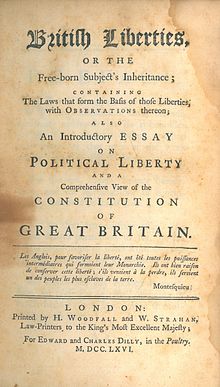Charles Dilly
Charles Dilly (1739–1807) was an English publisher and bookseller.
Life
He was born 22 May 1739 at
They were also hospitable at
On the death of his brother Edward in 1779, Charles Dilly continued the business alone, and kept up the social life for which the two had been famous. He was invited to become an
Last years
After a prosperous career of more than 40 years, Dilly retired in favour of Joseph Mawman, who had been in business in York. He continued literary dinner-parties at his new house in Brunswick Row, Queen Square, and lived there a few years before his death, which took place at Ramsgate, while on a visit to Richard Cumberland, on 4 May 1807. He was buried 12 May, in the cemetery of St. George the Martyr, Queen Square. He left a fortune of nearly £60,000.[1]
Politics

Edward and Charles Dilly were seen as radical publishers.[3] Charles Dilly, a dissenter, belonged to the Club of Honest Whigs circle, and was a member of the Society for Constitutional Information.[4][5][6]
Notes
- ^ a b c d Stephen, Leslie, ed. (1888). . Dictionary of National Biography. Vol. 15. London: Smith, Elder & Co.
- ISBN 978-0-313-29411-2.
- doi:10.1093/ref:odnb/18456. (Subscription or UK public library membershiprequired.)
- doi:10.1093/ref:odnb/2067. (Subscription or UK public library membershiprequired.)
- doi:10.1093/ref:odnb/15105. (Subscription or UK public library membershiprequired.)
- doi:10.1093/ref:odnb/7671. (Subscription or UK public library membershiprequired.)
Attribution
![]() This article incorporates text from a publication now in the public domain: Stephen, Leslie, ed. (1888). "Dilly, Charles". Dictionary of National Biography. Vol. 15. London: Smith, Elder & Co.
This article incorporates text from a publication now in the public domain: Stephen, Leslie, ed. (1888). "Dilly, Charles". Dictionary of National Biography. Vol. 15. London: Smith, Elder & Co.
